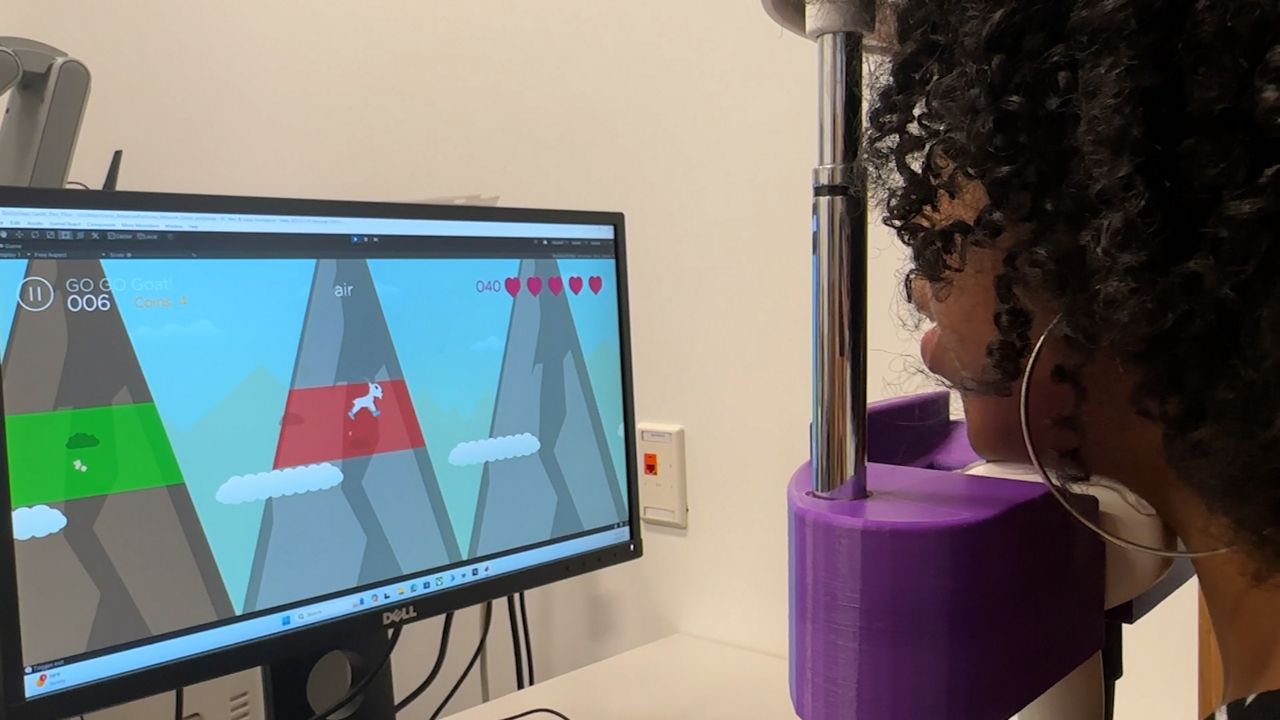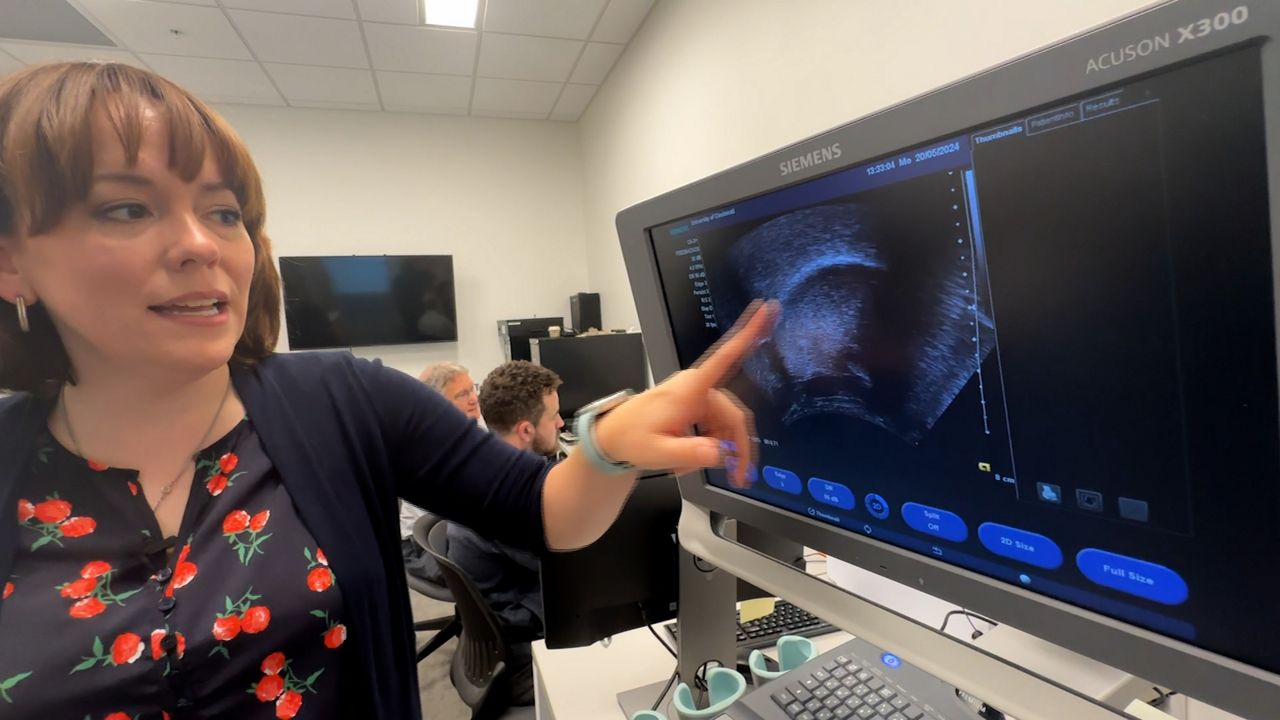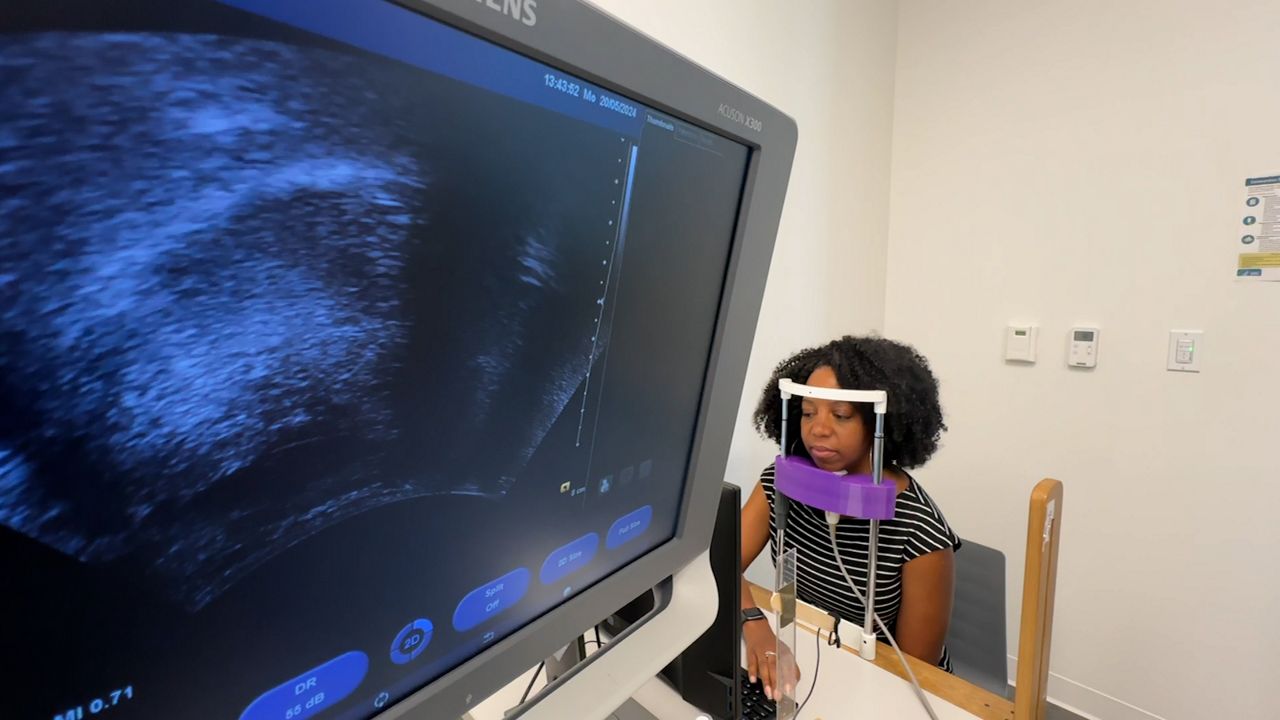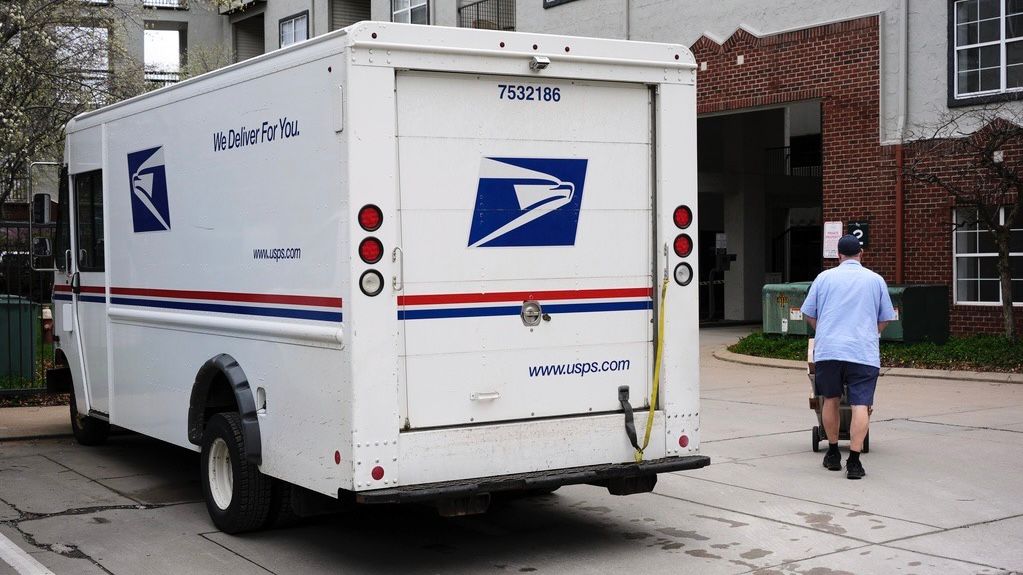CINCINNATI — Speech therapy for children isn’t always the most fun activity, but it’s critical for kids who need extra help pronouncing certain sounds correctly. Which is why one Ohio college created a video game to help kids not only improve their speech, but have fun while doing it.
What You Need To Know
- The University of Cincinnati has developed a video game to coincide with speech therapy
- The game will focus on children correctly pronouncing the "R" sound in different words in order for the goat on roller skates to move from cloud to cloud
- Speech language pathologists have already begun working with children with the new game and say it could help cut down time children need speech therapy
- Many departments at UC came together to create the game, including engineering and design
It seems simple: say a word correctly and you move on. But this video game has a lot of science behind it.
“This is a way, we hope of making speech therapy motivational and, easier for kids to, maybe understand and use as a practice tool," Sarah Dugan, a speech language pathologist at UC said.

Dugan helped come up with the initial idea of the game and now sees patients utilizing it.
“This is something that really helps," Dugan said. "But it takes a little while to learn to, to understand how to read it. So we're still using ultrasound, but instead of watching the ultrasound view, we are able to watch a video game instead.”

Dugan and other SLPs watch the patient’s tongue movements through ultrasound, to ensure the patient is saying the word or sound right, which in turn would allow the goat on roller skates in the game to move forward.
“This can help to shorten the duration of time in speech therapy, because the kiddo and the speech therapist can watch together and say, oh, no, that's not quite right," she said.
On the other side of the game is biomedical engineer grad student Nicholas Schoenleb.

“I'm just looking at making sure all those points on the screen follow up with the tongue as close as they can and just correcting it as it goes and making sure everything's perfect," Schoenleb said.
The engineering department helped code the program, and is giving students like Schoenleb hands-on experience.
“I think of in terms of experiences, the ability to interact with patients and participants is something that's really unique," he said. "It really challenges you to not only just, be better, but just to work harder in everything. I think that's super valuable.”
The creative side of the game got some help from design students and professors.

“The larger part of this is how do you build motivation in and so as they speak it properly, yes, it hops from cloud to cloud, but they also gain coins," Reneé Seward an endowed associate professor of communication design said. "And there's this like sound that happens when they gain the coin. So just building up a little excitement there.”
It’s a true celebration of collaboration across the university to help kids successfully master difficult sounds.

“That, to me, is a win of how do you train people to collaborate between different industries to solve problems that matter?" Seward said. "And I think that that's what they were doing. And then the problem that matter, it's seeing children, who are struggling to speak, just gain motivation to keep wanting to get better.”
The University of Cincinnati is planning two two-week summer camps for kids who struggle with pronunciation of the “R” sound. The children will get a chance to use the game as part of therapy to gain feedback on the process. Click here for more information.










